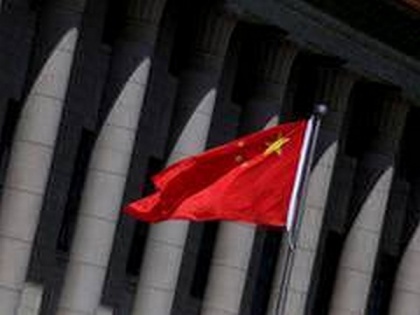China reciprocates New Zealand's suspension of extradition agreement with Hong Kong
By ANI | Published: August 3, 2020 10:54 PM2020-08-03T22:54:58+5:302020-08-03T23:10:29+5:30
Hong Kong has suspended the agreements on the mutual extradition of suspects and criminal justice cooperation with New Zealand in a reciprocal response to Wellington, Chinese Foreign Ministry spokesman Wang Wenbin said on Monday.

China reciprocates New Zealand's suspension of extradition agreement with Hong Kong
Hong Kong has suspended the agreements on the mutual extradition of suspects and criminal justice cooperation with New Zealand in a reciprocal response to Wellington, Chinese Foreign Ministry spokesman Wang Wenbin said on Monday.
Last Tuesday, New Zealand joined the ranks of countries that have suspended extradition agreements with Hong Kong in response to Beijing's new controversial security law in the special administrative region. As stated by New Zealand Foreign Minister Winston Peters, it was because Wellington could no longer be confident in the independence of Hong Kong's criminal justice system.
"China decided that Hong Kong suspend the agreements on mutual extradition of suspects and criminal justice cooperation with New Zealand," Wang said at a briefing.
The spokesman described New Zealand's unilateral suspension of the extradition treaty with Hong Kong under the pretext of the new security law as a "politicization of [its] legal cooperation with Hong Kong and a gross interference in China's domestic affairs as well as a serious violation of international law and basic norms of international relations."
"China is strongly opposed to this," the spokesman added.
Throughout last week, similar extradition agreements with Hong Kong were suspended by Australia, Canada and the United Kingdom as a sign of their protest against the new security law.
The Chinese government enacted the law on June 30, following a little more than a month-long review at the National People's Congress. The law adjusts security policies in Hong Kong to Beijing's perception of crime and punishment with regard to separatism, subversion, terrorism and collusion with foreign countries.
The Western critics of the law fear that it might painfully limit Hong Kong's exclusive rights and freedoms, which it was guaranteed under the 1984 UK-Chinese agreement. The law has triggered a backlash in Hong Kong and residents staged protests for the entire time it was under review by the Chinese lawmakers and they remain ongoing. (Sputnik/)
( With inputs from ANI )
Open in app